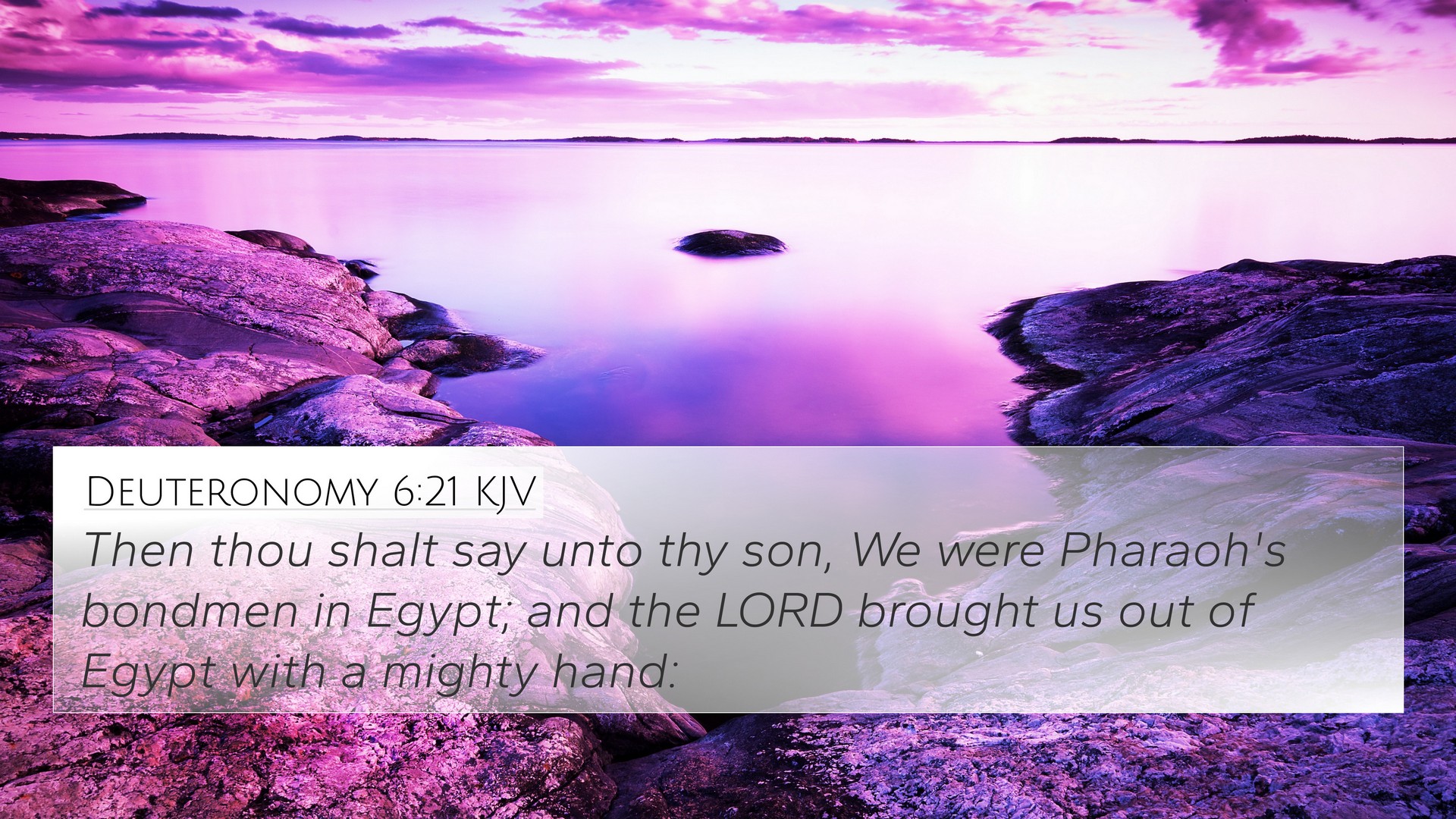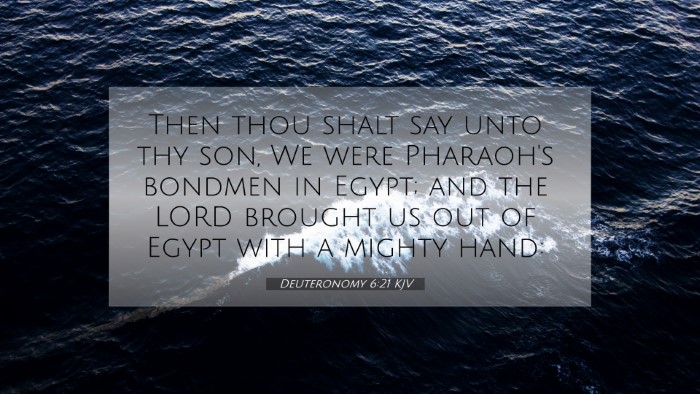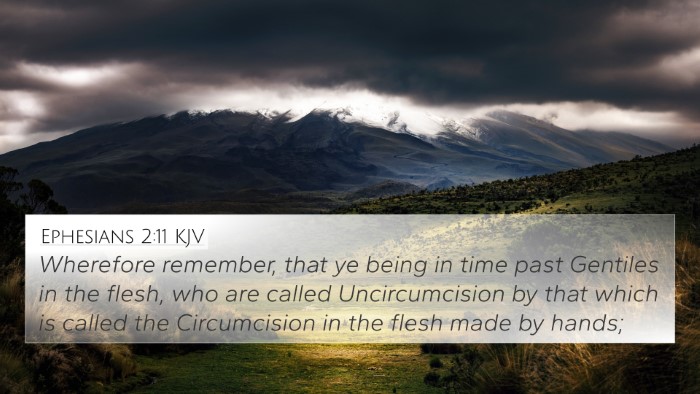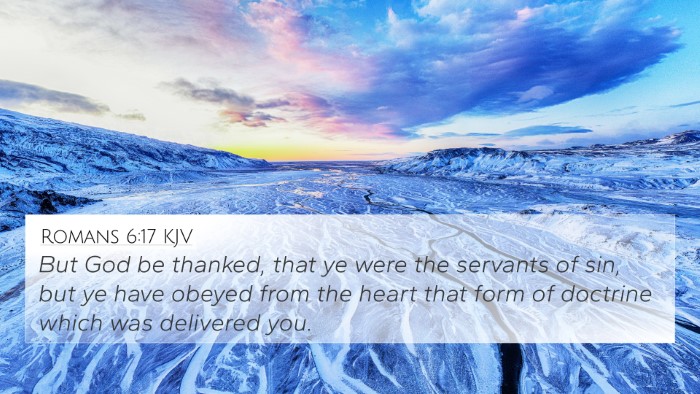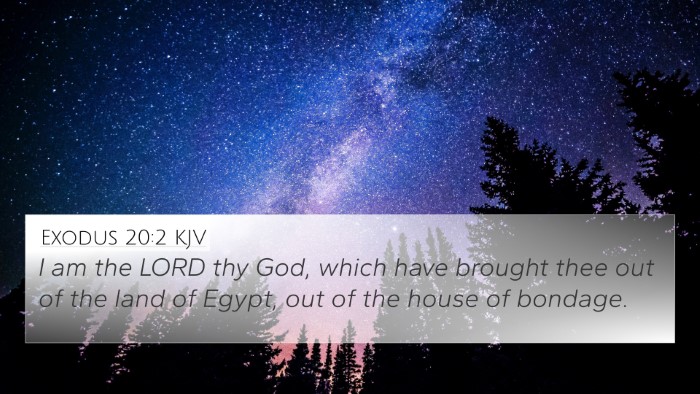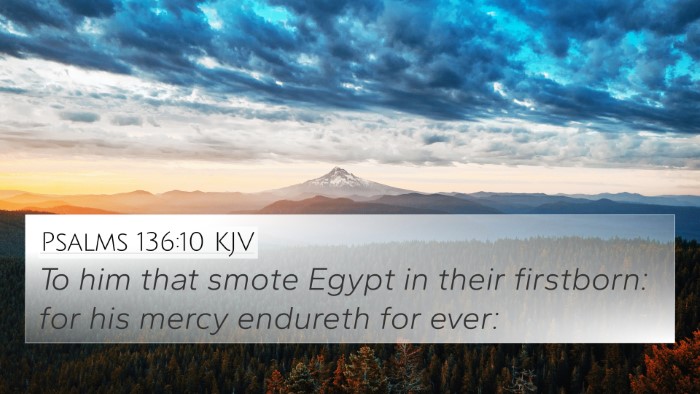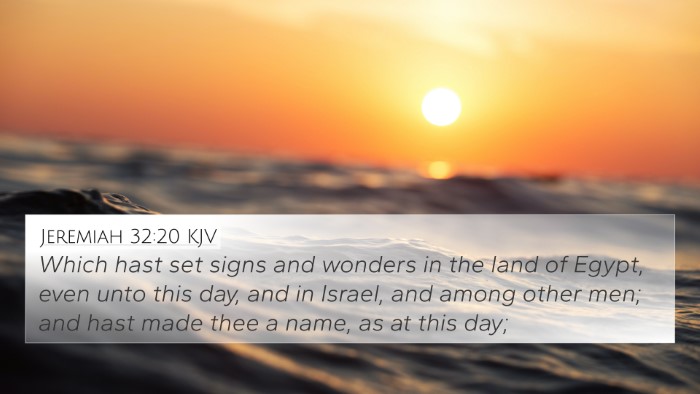Understanding Deuteronomy 6:21
Bible Verse: Deuteronomy 6:21 - "Then you shall say to your son, ‘We were Pharaoh's slaves in Egypt, and the Lord brought us out of Egypt with a mighty hand.’"
Summary of Meaning
Deuteronomy 6:21 emphasizes the importance of remembering and teaching the story of the Lord’s deliverance of the Israelites from slavery in Egypt. This verse highlights parental responsibility in conveying the history of God’s faithfulness to future generations, ensuring that the narrative of salvation remains alive and influential in the hearts and minds of children.
Commentary Insights
- Matthew Henry: Henry interprets this verse as a call to teach children about God’s grace and deliverance. He stresses that parents should not only remember their own salvation but also actively recount God's deeds to instill faith and gratitude in their children.
- Albert Barnes: Barnes elaborates on the significance of historical memory in the faith of Israel, explaining that recounting their experience as slaves serves as a reminder of God’s power and mercy, thus encouraging a deep-rooted faith and relationship with Him among the younger generation.
- Adam Clarke: Clarke emphasizes the transformative aspect of sharing personal testimonies, noting that reminding children of their ancestry as liberated slaves serves a dual purpose: it fosters appreciation for their freedom and instills respect and reverence for God’s eternal promises.
Key Themes
- Parental Instruction: The verse underscores the importance of parents teaching their children the lessons of faith, which helps to preserve the spiritual heritage.
- God’s Deliverance: It signifies the importance of acknowledging God's power in past deliverance as a foundation for faith in present and future challenges.
- Historical Reflection: The act of remembering the past serves to encourage current and future generations to trust in God’s provision and presence.
Cross-References
- Exodus 12:26-27: Details instructions on how to explain Passover's significance to the children, paralleling the concept of teaching about God's deliverance.
- Psalms 78:3-4: Highlights the importance of sharing testimonies of God's works across generations.
- Joshua 4:6-7: Places importance on memorial stones to remind future generations of God's faithfulness.
- Proverbs 22:6: Advises on training children in the way they should go, which connects with the responsibility of passing down the faith.
- Deuteronomy 11:19: Also emphasizes teaching children about God's commandments at all times.
- Malachi 4:6: Talks about restoring the hearts of the fathers to the children, which resonates with the intent of generational teaching.
- 2 Timothy 1:5: Refers to the faith passed from grandmother to mother and then to Timothy, emphasizing continuous transmission of faith.
- Acts 7:34: References God's awareness of His people's suffering and His plan for deliverance, linking to the reason for remembering God's actions.
Application
This verse encourages believers to consider their role in the spiritual education of the next generation. In practice, it means creating meaningful discussions about faith, God's nature, and His actions in history. Engaging children with stories of God's faithfulness can solidify their faith and provide spiritual grounding.
Conclusion
Deuteronomy 6:21 serves as an important reminder of the responsibility to convey the historical and theological significance of God’s salvific actions. By understanding this verse and its implications through various commentaries, we can foster a deeper appreciation for our faith and ensure the teachings of God are not lost to future generations.
